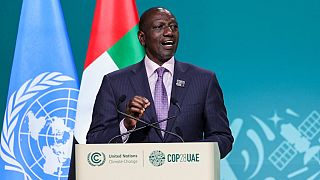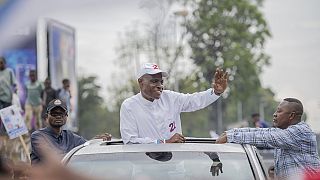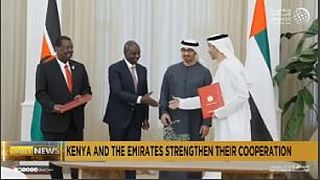United Arab Emirates
The Middle East plays host to its second straight United Nations climate conference over the next two weeks, with countries hoping to agree on new ways to keep the planet from heating too much by the end of the century.
Dubai in the United Arab Emirates will welcome thousands of attendees for the 28th “Conference of the Parties” of the U.N. climate conference starting Thursday until December 12.
But doubts linger about how far the oil-rich country will go to help end a climate crisis driven largely by fossil fuel use.
The world has gotten hotter since last year’s conference in Egypt.
Some experts say 2023 is already the hottest year ever recorded.
The northern hemisphere had record highs this summer, and Brazil – where it’s not summer yet – this month saw all-time high heat and humidity.
Signs are growing that the world – especially developing countries – is increasingly ill-prepared: This year’s monsoon season in India caused nearly $1.5 billion in property damage.
Tropical storm Daniel in September caused deadly floods in Libya.
Last month, Hurricane Otis pummeled Mexico, raising fears that the government would spend more money to rebuild than to help people cope.
The world is heading for considerably less warming than projected a decade ago, but that good news is overwhelmed by much more pain from current climate change than scientists anticipated, experts said.
That’s just one of a set of seemingly contradictory conditions facing climate negotiators who this week gather in Dubai.
The marathon United Nations talks will include a first-ever assessment of how well the world is doing in its battle against global warming.
It’s also a conference where one of the central topics will be whether fossil fuels should be phased out, but it will be run by the CEO of an oil company.
The UAE has named ADNOC CEO Sultan al-Jaber, who also runs a renewable energy company, as the conference president.
Al-Jaber and his colleagues say by bringing fossil fuel companies to the table, they can get more done and that it may take someone in the industry to get the concessions needed.
Environmental activists don’t believe it.
Bridget Burns, executive director of Women's Environment and Development Oragnization based in USA held a sign calling for and end of fossil fuel.
Burns told The Associated Press that the irony of having COP28 in "one of the largest exporters of fossil fuels," wasn't lost on the activists who joined.












01:37
Indigenous and climate activists rally in Brasília ahead of COP30
01:54
Africa's GDP growth to rebound amid ongoing poverty and climate challenges
02:02
New report finds only seven countries met world clean air standards in 2024
03:46
With 500 species, Moroccan exotic garden an oasis of biodiversity
01:11
Extreme weather's toll on education: a UNICEF report overview
01:06
UN: Antonio Guterres sets priorities for 2025